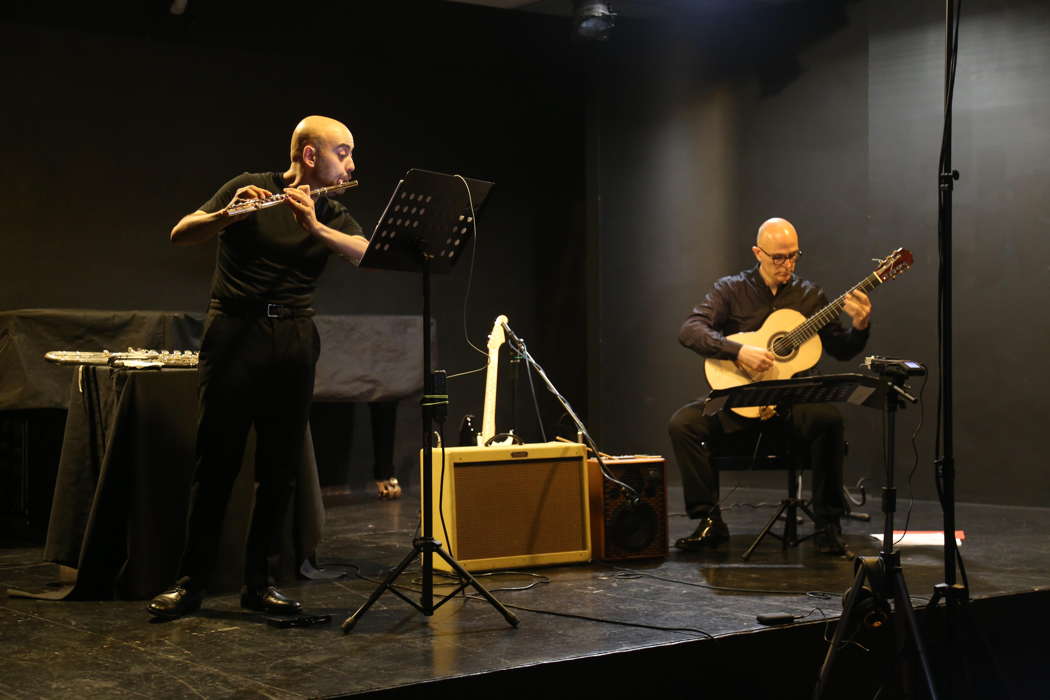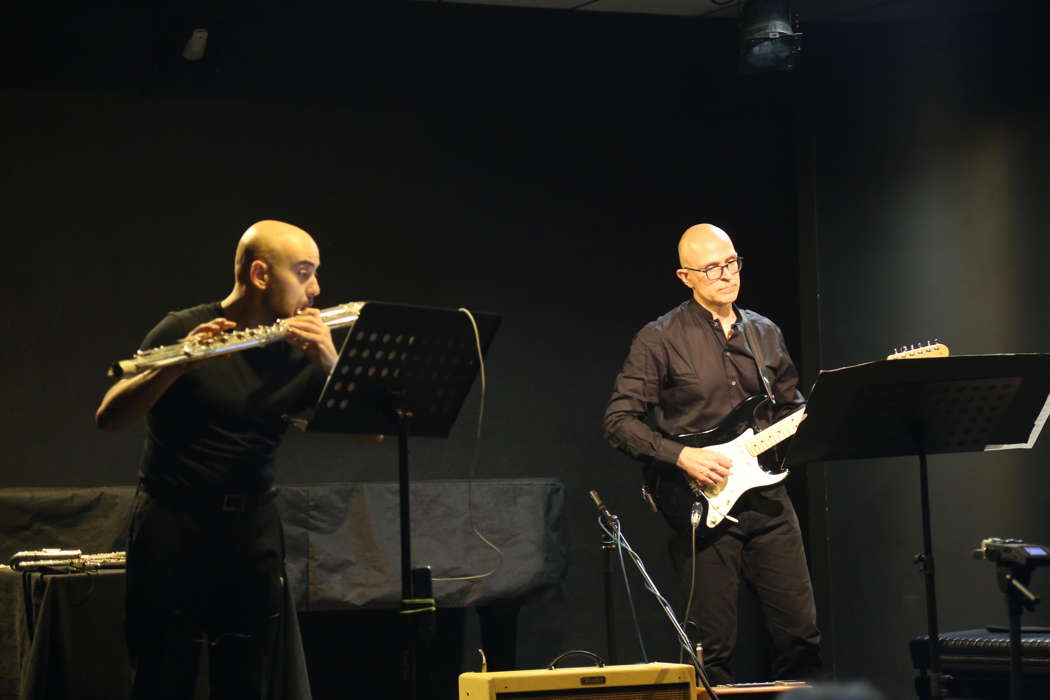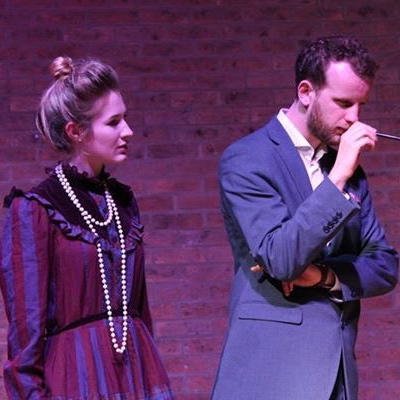- George Flynn
- Universal Music Group
- contemporary music
- Vasilije Mokranjac
- wolf
- Francesco Bernardi
- Celibidache
- Domingo Garcia
'New Music' in Rome
GIUSEPPE PENNISI reports from the last of the
Accademia Filarmonica Romana's summer concerts
As reported in Classical Music Daily on 21 June, the Accademia Filarmonica Romana (Roman Philharmonic Academy) opened its summer program with a series of chamber concerts - with one or two soloists - in the cosy Sala Casella within its lush gardens near the Villa Borghese.
On 12 July 2020, I attended the last concert of the series: a flute (Andrea Biagini) and guitar (Luigi Sini) recital that looked almost like a family affair of the Rome 'new music' society. The concert was a celebration of the eightieth birthday of composer and conductor Marcello Panni and of ninetieth birthday of composer Luis de Pablo, who had been recently awarded the Golden Lion for his career by Venice Art Biennale. The program included two world premieres by the two composers as well as a first performance by Lucio Gregoretti, President of the Rome based 'Nuova Consonanza' association, one of the most ancient and authoritative Italian modern music societies. There were also compositions by Nicolo Castiglioni, Ivan Vandor, Ada Gentile, Fabrizio De Rossi Re and Francesco Pennisi (in the twentieth anniversary year of his premature death).
On a hot summer Sunday in July, the small auditorium (with fewer seats than usual due to COVID-19 social distancing regulations) was filled with the relatives and friends of the composers as well as specialists and lovers of contemporary music.
Let us start with the world premiere. Luis de Pablo's Tú voladora was the most elaborate piece in the concert. Especially composed for his ninetieth birthday and based on a parody of mythological fairy tales, in less than fifteen minutes, the piece is structured in four movements. It captured quite well the attention and the interest even of those that are not specialists of contemporary music. Originally, the composition was conceived for guitar only. In this new version, the flute dialogues with the guitar with a lot of Spanish flavour and colours.

Andrea Biagini (left) and Luigi Sini. Photo © 2020 Simone Di Segni
Marcello Panni's Zodiac Second is a re-elaboration too of a composition for soprano and symphony orchestra, commissioned five years ago by the Tuscany Regional Orchestra and based on short poems in English about the twelve signs of the Zodiac. In this new version, the flute replaces the soprano and the guitar the full orchestra. The signs are depicted in twelve very short pieces from Pisces to Aquarius. A charming and pleasant composition.
Lucio Gregoretti's Verso la notte is inspired by American playwright Eugene O'Neill's play Long Day's Journey Into Night, an autobiographical account of the author's explosive home life with a morphine-addicted mother and alcoholic father. The five hour play is summarized in less than ten minutes where a very agitated confrontation between the flute and the guitar is followed by the upcoming quietness of the night. There are quite a few echoes of American music of the nineteenth forties.
Quite impressive was Fabrizio De Rossi Re's Monstrous Ships II for bass flute, electric guitar and tape.

Andrea Biagini (left) and Luigi Sini. Photo © 2020 Simone Di Segni
Sic by Nicolo Castiglioni and Perflautoechitarra by Ada Gentile were delicate. Esquisse en Noir by Ivan Vandor was full of atmosphere. Francesco Pennisi's Méliès was precious, elegant and sophisticated.
In short, this was an interesting evening to learn about contemporary music trends and tendencies in Italy.
Copyright © 13 July 2020
Giuseppe Pennisi,
Rome, Italy

FURTHER INFORMATINO ABOUT FRANCESCO PENNISI
FURTHER LIVE CONCERT AND OPERA REVIEWS




